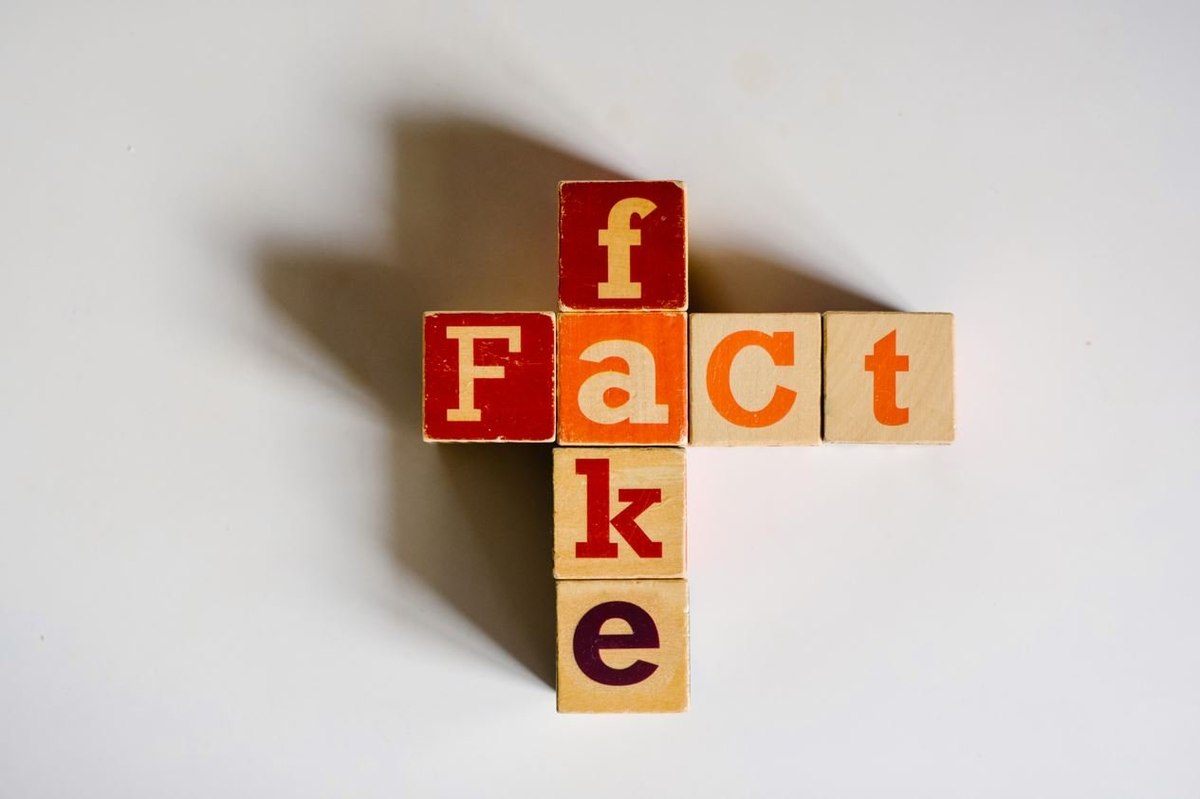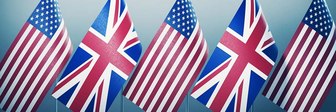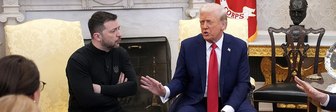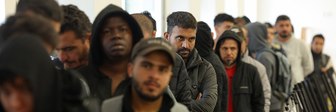According to new findings from the annual YouGov-Cambridge Globalism Project, US voters are substantially divided by their willingness to believe in conspiracy theories, with large numbers of Trump supporters who doubt the legitimacy of the last Presidential election.
As results show from fieldwork in August to September this year, three quarters of people who voted for Trump (73%) at the last election believe it is definitely or probably true that “certain forces in America stole the election from Donald Trump by committing systemic voter fraud that prevented him from winning”. By comparison, only 9% of Biden voters said the same.
Levels of belief in other conspiracy theories show a comparable gap. Large portions of Trump supporters versus small portions of the Biden vote say the same about theories such as “the truth about the harmful effects of vaccines is being deliberately hidden from the public” (47%, 9%); that the world is really run by a hidden cabal who “secretly control events and run the world together” (42%, 18%), and “the idea that man-made global warming is hoax that was invented to deceive people” (45%, 7%).
A smaller but still significant difference can be found regarding the QAnon movement, with a quarter of Trump voters (23%) answering definitely/ probably true to the claim that “a secret group of Satan-worshipping paedophiles has taken control of parts of the U.S. Government and mainstream U.S. media”. The figure for Biden voters was 9%.
Perhaps just a notably, there were also some areas of conspiracism where Trump and Biden voters looked much the same. Levels of belief were similarly low for several theories including: that the US Government was behind the 9/11 attacks (15% Trump, 14% Biden); that “the official account of the Nazi Holocaust is a lie and the number of Jews killed by the Nazis during World War II has been exaggerated on purpose” (8%, 9%); that the moon landings were faked (9%, 6%); or that “Coronavirus is a myth created by some powerful forces, and the virus does not really exist” (9%, 6%).
One theory where the contrast points the other way is around the 2016 election: this time, it is three in four Biden voters (75%) who give credibility to the suggestion that “members of Donald Trump's election team knowingly worked with the Russian Government to help him win the 2016 US Presidential Election”, compared with 6% of the Trump vote.
Wider results from the survey suggest that vaccine scepticism is now well established among a significant minority around the world. In twenty out of twenty-three countries surveyed, at least a fifth to a third in each case were willing to entertain the view that the truth about the harmful effects of vaccines is being deliberately hidden from the public.
The same results also emphasise an important distinction, however, between general, vaccine scepticism and more hard-core conspiracy beliefs around Coronavirus. Nearly all countries demonstrated significantly lower willingness to believe that COVID is a myth than to believe in a cover-up about vaccines in general.
More generally, Western countries tended to demonstrate less of a tendency to believe in conspiracy theories compared with other parts of the world, with Britain, Japan and the Scandinavian countries being among the least likely to entertain them. At other end of the spectrum, India and the African countries in the sample stand out with some markedly large numbers of conspiracists. For instance, half of Indians and large majorities in South Africa (61%), Nigeria (69%) and Kenya (72%) answered definitely/probably true to the idea that the world is run by a secret cabal, next to 47% in Mexico and 45% in Turkey, while only 18% in Britain, 10% in Denmark and 11% in Japan stated the same.
Within the Western part of the sample, however, some contrasts stand out. 42% of Greeks believe either probably or definitely in the ‘world cabal’ theory, and larger numbers across the board are willing to believe in the Trump-Russia story, compared with other theories, including over 40% in Germany, Spain, Britain, Australia and Canada.
Speaking of which, it seems the Russian public is significantly on Trump’s side, with the lowest percentage of any country willing to believe that the Moscow government conspired with Trump to help him win the White House, at only 13%. Moreover, Russians are second only to the Indian public with the highest likelihood (37%) to believe that Trump had the 2020 election stolen from him.
Results:
Conspiracy theories United States
Conspiracy theories international
...........................................................................
For more about the Globalism Project, see here.
Image: Getty











